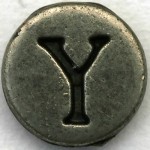
Running a small business is hard work.
Cash flow is tight; time is in short supply.
When there’s just not enough in the bank to cover payroll, the easiest loan in town is from the Bank of Uncle Sam.
There’s no application, no review, no waiting.
You just give employees their checks, net of the amounts withheld. You can repay the withheld amounts when cash flow is better, you tell yourself.
Up until now, that maneuver was costly and the financial consequences unavoidable. Now, in California, it’s also criminal.
California employers exposed
Senate Bill 390, signed into law in October, 2013, makes it a crime for an employer to fail to pay over to taxing authorities money withheld from employees’ paychecks.
As little as $500 unpaid, and the matter is a felony. The easy “loan” can result in hard time.
Responsibility for payroll taxes
Incorporating a business appears insulate the owners and managers of a business from liability for the debts of the business.
Payroll taxes, or more precisely, trust fund taxes, are an exception.
Trust fund taxes is the label given to the amounts that are withheld from an employees wages. The withholding includes the employee’s contribution to FICA or Social Security, as well as the employee’s income tax withholding.
The employer holds those funds in trust. The funds belong to the employee and are entrusted to the employer to transmit to the appropriate state and federal tax authorities.
Failure to remit withheld taxes
Both federal and California law hold corporate management personally responsible if the corporate employer doesn’t pay over the withheld funds.
The tax folks see it as almost theft or embezzlement when the employer diverts that money to the corporation’s purposes. Even if management sees the failure to pay as a matter of survival, there’s little understanding available if you short the taxes.
If the money is withheld from the employee’s paycheck, the tax authorities will give the employee credit for the withheld money. They see the employee as having done everything expected of him.
The tax authorities then pursue with a vengance every person in corporate management who could have signed the check to remit the funds as expected.
So the liability for the quickie loan spreads over all individuals with decision making power in the business.
Trust fund liability not dischargeable in bankruptcy
Civil liability for unpaid trust fund taxes cannot be wiped out in a bankruptcy filing.
The responsible-person penalty for failing to pay trust fund amounts is collectible for 10 years from assessment.
So, even before it became criminal, handing out net checks and pocketing the difference had consequences.
Now, the consequences include conviction for a crime.
Warning signal
If you are faced with an approaching payroll, and no way to pay all of the taxes and withholding associated with payroll, it’s time to have a serious discussion about the future of the business.
It’s one thing to fail in business; it’s quite another to become a felon.
More
How to think about going out of business
Image courtesy of Flickr and Infomatique.





